A
Omar Ali Fdal
Omar Ali Fdal, from Statice in Berlin, has been working on sensitive data in both corporate and startup settings, currently researching and developing privacy-preserving data generation algorithms to help organizations safely collaborate on data.
B
Iness Ben Guirat
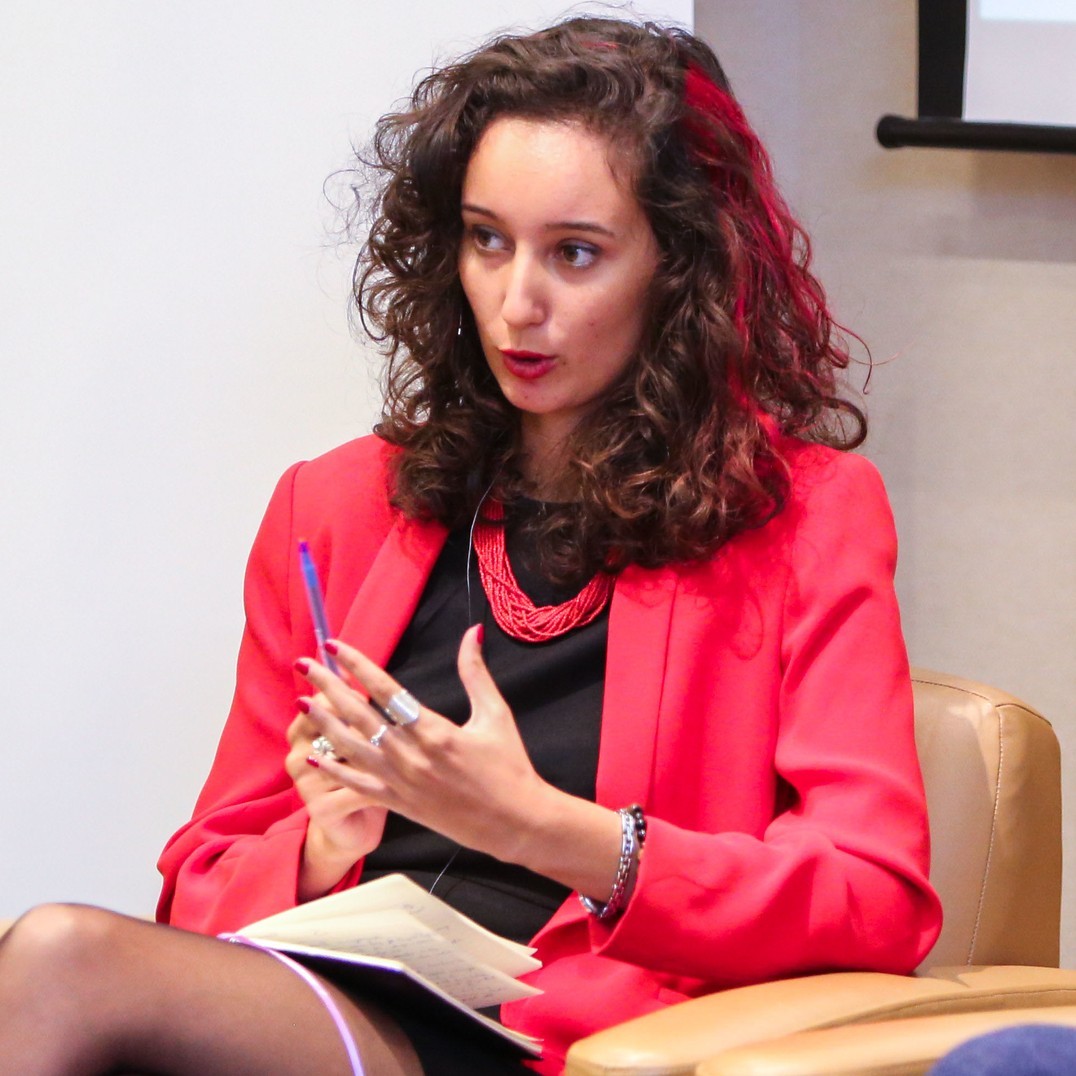
Iness BEN GUIRAT is an engineer researcher at INRIA, Paris. She holds an
engineering degree in IT security from INSAT, Tunis. Her current research fo-
cuses on Formal Verification on protocols and privacy related topics. She is also
involved in advocacy projects on various issues related to the freedom of Internet
such as surveillance and cyber-security, a work she does with several NGOs like
National Democratic Institute(NDI), and Arab World Internet Institute(AWII).
Contact: INRIA 2 Rue Simone IFF, 75012 Paris, iness.ben-guirat@inria.fr
István Böröcz
Jaya Klara Brekke

Jaya Klara Brekke speaks, writes and does research on questions of authority, control and power in decentralised systems and architectures. She is the author of the Satoshi Oath and the B9Lab ethical training module for blockchain developers and has been working in research and cultural production on projects related to the political economies of infrastructures for the past ten years. She is currently based between Durham University, UK, where she is writing a PhD titled ‘Distributing Chains, Three Strategies for Thinking Blockchain Politically’; London and the InfoSec research group at UCL Computer sciences department; and Vienna as collaborator of RIAT, Institute for Future Cryptoeconomics.
Jelena Budak
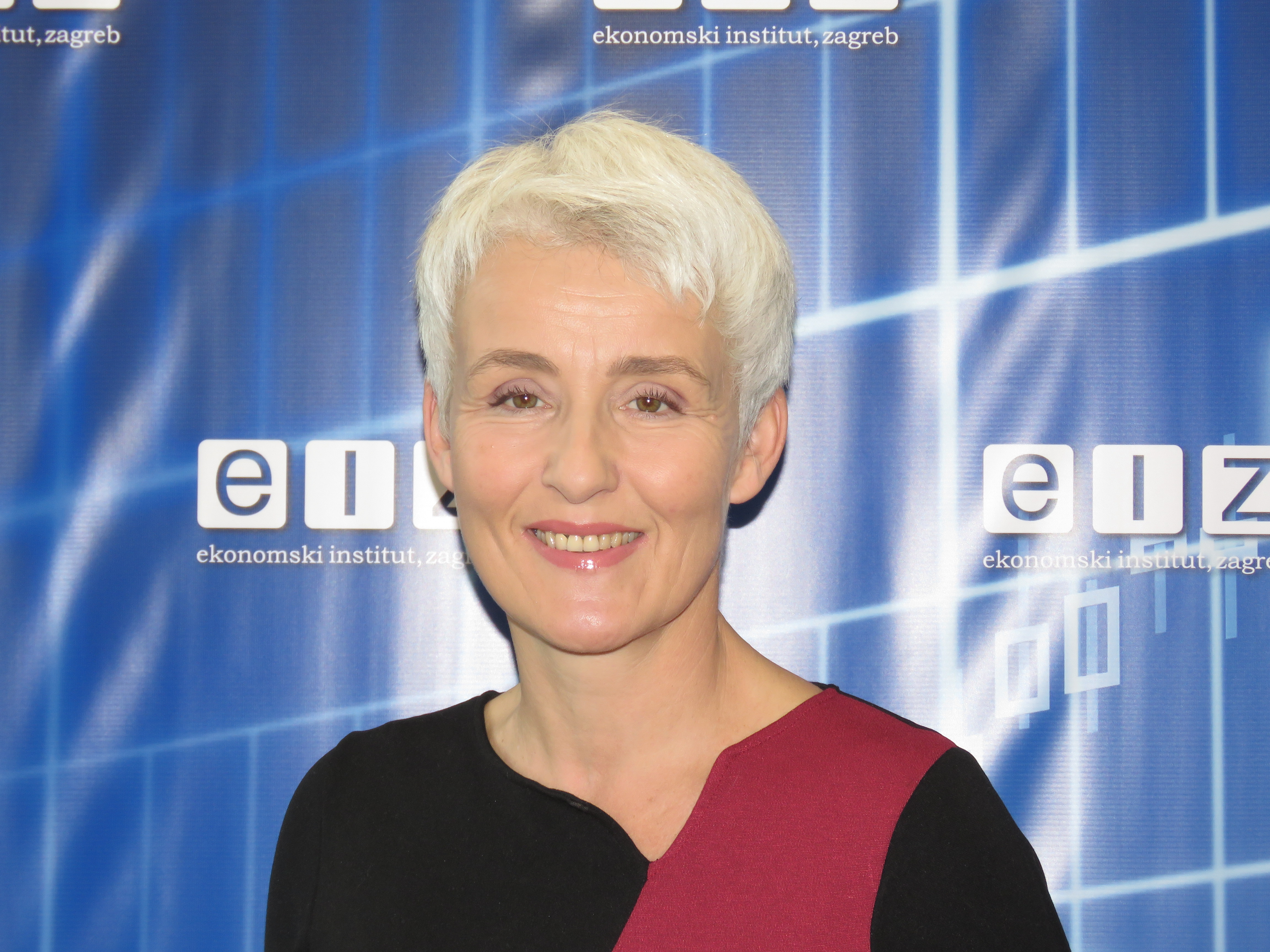
Jelena Budak is senior research fellow with the Institute of Economics, Zagreb. She had participated in research projects on various aspects of Croatia’s accession to the EU, such as institutional convergence, public sector policies and regional development issues. Her research interests are institutions and applied institutional analysis, socio-economic assessments of transition, and most recent publications are in economics of corruption and privacy issues. She is leading two major research projects: Extended Model of Online Privacy Concern (PRICON) and Illegal Trade of Tobacco Products: Smuggling as Experienced along the Balkan Route (BalkanSmugg). Contact: Institute of Economics, Zagreb, Trg J.F. Kennedyja 7, 10000 Zagreb, Croatia, jbudak@eizg.hr
C
Lucien Castex

Lucien Castex is secretary-general of Internet Society France and a
Research Associate at Université Sorbonne Nouvelle – Paris 3. He is an
expert in Internet policy and governance with a particular interest in
Privacy, cybersecurity and content regulation. He is also co-chair of
the French Internet Governance Forum.
D
Frank Dawson

Currently the Director, Privacy Compliance. Frank’s is the Head of Privacy for the Nokia Software business, which provides an industry-leading software portfolio of sophisticated, yet intuitive software solutions that enable service providers to accelerate innovation, monetize new services and business models, and continuously improve their customer experience.
Frank has over 25 years of software design and development experience, with the last 18 years in the mobile industry. Since 2009, Frank has been focused on helping build the privacy program at Nokia and supporting the integration of privacy into Nokia product development lifecycle. Frank is an evangelist for Privacy by Design and an advocate for the emergence of Privacy Engineering as a software discipline.
Frank has a MSEE from University of Missouri-Columbia, Missouri/US and holds a CIPP/IT certification from International Association of Privacy Professionals, a PMP certification from Project Management Institute and a CSM certification from SCRUM Alliance.
E-mail: frank dot dawson at nokia dot com
E
Ksenia Ermoshina
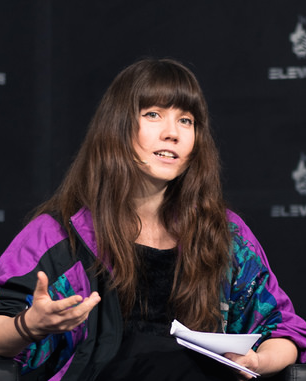
Ksenia Ermoshina is a postdoctoral research fellow at Citizen Lab, Munk School of Global Affairs, University of Toronto. She holds a PhD in socio-economy of innovation from the Center for Sociology of Innovation, Mines Paris Tech school of engineering. Her current research focuses on information control after the annexation of Crimea, she studies Internet censorship on the peninsula, transformation of Internet infrastructures and ISP markets in Crimea, as well as privacy and security considerations of journalists and activists working with and from Crimea. Previously Ksenia worked in the European Horizon 2020 project NEXTLEAP, she studied development of privacy enhancing technologies (end-to-end encrypted messaging and email apps) and its usages by high-risk activists around the world.
H
Harry Halpin

Harry Halpin is the project co-ordinator of the NEXTEAP (http://nextleap.eu) project at Inria de Paris in the Prosecco (Programming Securely with Cryptography) team. He helped author the Digital Social Innovation Study that led to the 30 million euro+ Collective Awareness Platform effort. He is also a visiting Research Scientist at the Sociotechnical Systems Research Center at MIT on blockchain technology. He previously worked at W3C/MIT, where he led the Web Cryptography Working Group and resigned over digital rights management. He completed his Ph.D. in Informatics at University of Edinburgh under Andy Clark.
His work is focused on discovering, formalizing, and empirically testing the social and philosophical assumptions inherent in technology, including privacy-enhancing technologies, using the methods of data science. Motivating his work is the clear and present need to create an ethical foundation for the future technologies that enable fully realized and autonomous humans whose capabilities are extended by technology, rather than subservient to it.
J
Richard Jones
K
Mareile Kaufman
Dariusz Kloza

Dariusz (Darek) Kloza is a researcher at the Research Group on Law, Science, Technology and Society (LSTS) at the Vrije Universiteit Brussel (VUB), where he is a founding member of the Brussels Laboratory for Data Protection & Privacy Impact Assessments (d.pia.lab). He also freelances at the Centre for Direct Democracy Studies (CDDS) at the University of Bialystok (Poland). His expertise concentrates on the governance of privacy and personal data protection, in particular on the notion of impact assessments for emerging technologies. He holds both an LL.M. in Law and Technology (2010) from Tilburg Institute for Law, Technology, and Society (TILT) at Tilburg University (with distinction) and a master degree in law from the University of Białystok (2008), including a student exchange at the University of Copenhagen (2007-08). Previously, he held in parallel a part-time research position at Peace Research Institute Oslo (PRIO; 2015-17) and visiting fellowships, among others, at Bond University (Queensland, Australia; 2016).
L
Wouter Lueks

Wouter Lueks is a postdoctoral researcher at EPFL in Lausanne,
Switzerland, where he works in the SPRING lab of Prof. Carmela Troncoso.
He holds Masters’ degrees in Mathematics and Computer Science from the
University of Groningen, the Netherlands. In 2017, he obtained his PhD
degree from the Radboud University, the Netherlands for his thesis
titled “Security and Privacy via Cryptography”. Before arriving at EPFL,
he was was a postdoctoral researcher at the IMDEA Software Institute in
Madrid, Spain.
His
research focuses on privacy and security. He is interested in building
secure, practical, and privacy-friendly systems using applied
cryptography, anonymous communication and statistical techniques. Some
of the areas that he worked in include attribute-based credentials,
private information retrieval, anonymous communication, and revocable
privacy.
Adrienn Lukács

Adrienn Lukács is a joint PhD student at University Paris 1 Panthéon Sorbonne (France) and at University of Szeged (Hungary). She obtained her masters law degree in 2015 at the University of Szeged (Hungary). Her main research field relates to the joint examination of labour law and privacy/data protection law. The subject of her PhD dissertation focuses on social network sites and the right to respect for private life/right to data protection in the employment context.
M
Francesca Musiani

Francesca Musiani is Associate Research Professor (chargée de recherche), French National Centre for Scientific Research (CNRS), Institute for Communication Sciences (ISCC-CNRS/Sorbonne Université), and associated researcher at i3/MINES ParisTech. Her research focuses on Internet governance. She is one of the Principal Investigators in the NEXTLEAP project (nextleap.eu, 2016-2018)
P
Guillaume Piolle

Guillaume Piolle is a lecturer in Computer Science at CentraleSupélec, Rennes, France. He works in the CIDre (confidentiality, integrity, availability, distribution) research group. His research focuses on privacy and personal data protection, using tools from information security, logic and distributed artificial intelligence. His interests also encompass the links between the legal and computational views on privacy and security. His main field of research nowadays is the
characterization of the relationship between architectural design
choices (especially in terms of centralization and decentralization) and the security and privacy properties of the resulting information systems.
R
Charles Raab
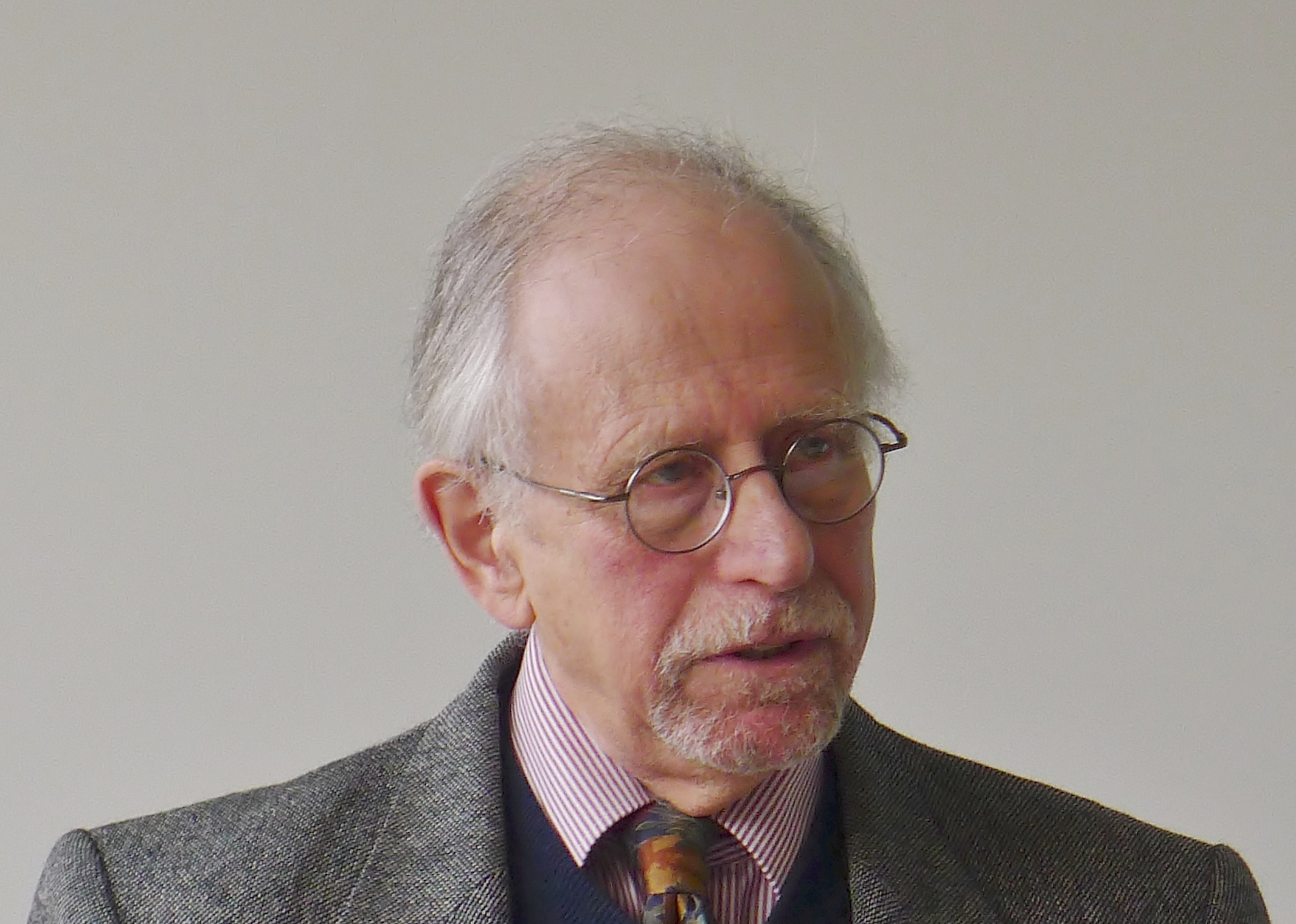
Charles Raab is Professorial Fellow and formerly Professor of
Government, University of Edinburgh; Director of the Centre for
Research into Information, Surveillance and Privacy (CRISP);
co-Chair, Independent Digital Ethics Panel for Policing (IDEPP);
Fellow, Alan Turing Institute and member, ATI Data Ethics Group.
Research on privacy, data protection, surveillance, ‘smart’
environments, resilience, identity, security, democracy. Publications
include (with C. Bennett), The Governance of Privacy (2003;
2006); (with B. Goold), Protecting Information Privacy (2011);
(with Surveillance Studies Network), A Report on the Surveillance
Society (2006); (with W. Webster et al, eds.), Video
Surveillance; (with R. Jones and I. Székely),
“Surveillance and Resilience in Theory and Practice” (2015).
Evidence to UK parliamentary committees (e.g., Intelligence and
Security Committee, 2014); Specialist Adviser, House
of Lords Constitution Committee for inquiry, Surveillance:
Citizens and the State, HL Paper 18,
Session 2008-09. Fellow, Academy of Social Sciences; Fellow, Royal
Society of Arts.
Eric Rigaud
Julien Rossi
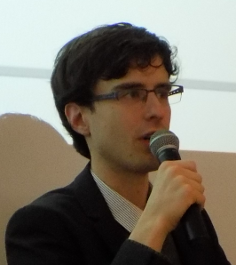
Julien Rossi is lecturer at the University of Rennes 2, and PhD candidate at the COSTECH Research Unit of the Université de Technologie de Compiègne. His work focuses on the study of data protection public policy.
Twitter: @julienrossi
S
Iván Székely
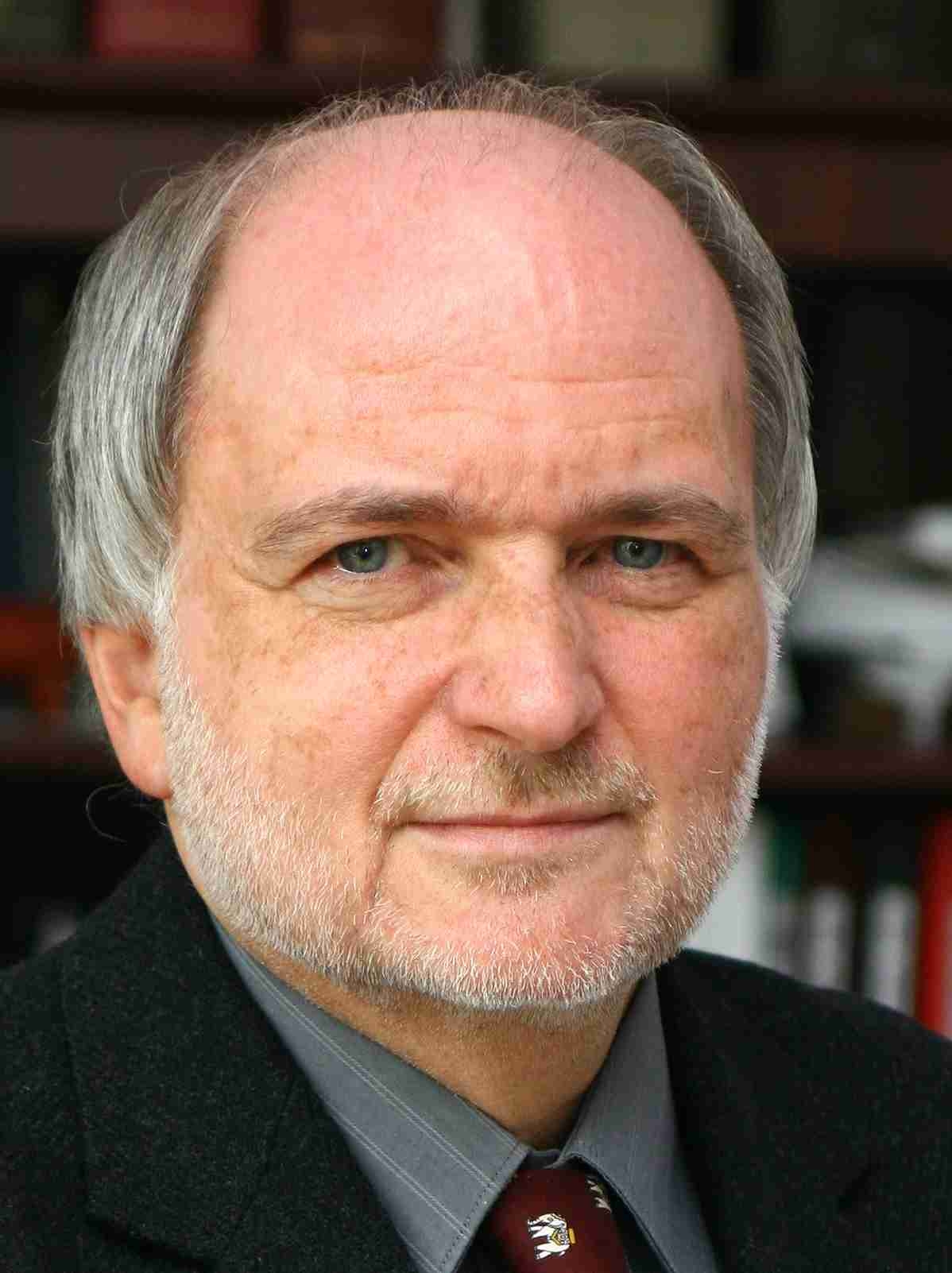
Ivan Szekely, social informatist, CSc in sociology, is an internationally known expert in the multidisciplinary fields of data protection and freedom of information. Former chief counsellor of the Hungarian Parliamentary Commissioner for Data Protection and Freedom of Information, Szekely is at present Senior Research Fellow at the Vera and Donald Blinken Open Society Archives at Central European University, associate professor at the Budapest University of Technology and Economics, and board member of the Eotvos Karoly Policy Institute. His research interests and publications are focused on information autonomy, openness and secrecy, privacy, identity, surveillance and resilience, memory and forgetting, and archivistics.
Eleanor Saitta
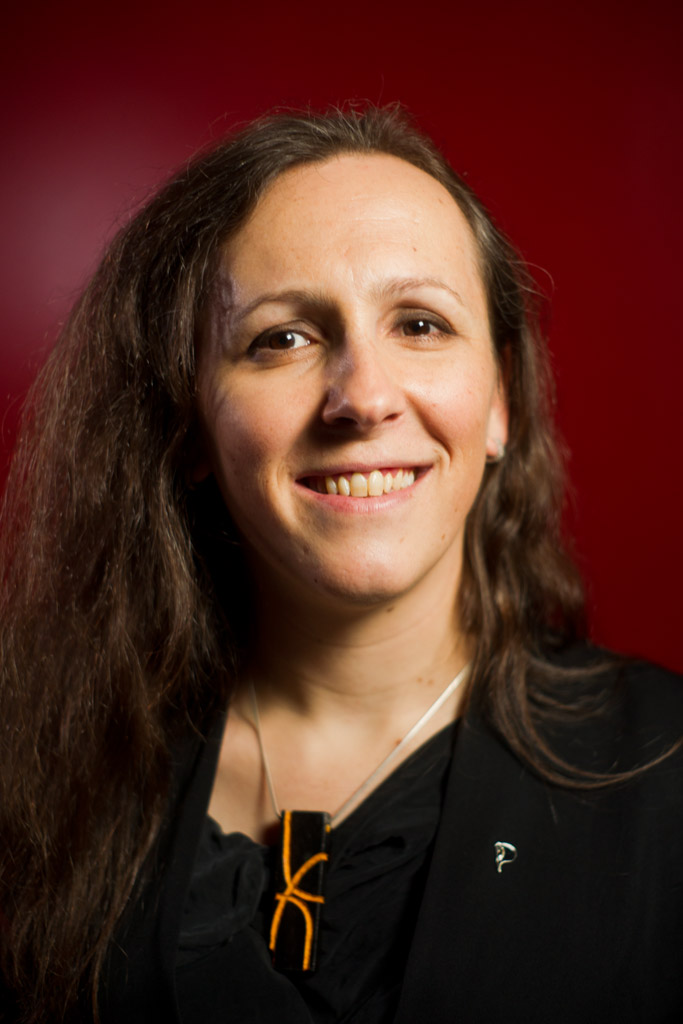
Eleanor Saitta is a hacker, designer, artist, writer, and barbarian. She has been working as a security consultant since 2003, specializing in security design and strategy, and makes a living and a vocation of understanding how complex sociotechnical systems operate and redesigning them to work, or at least fail, better.
T
Carmela Troncoso